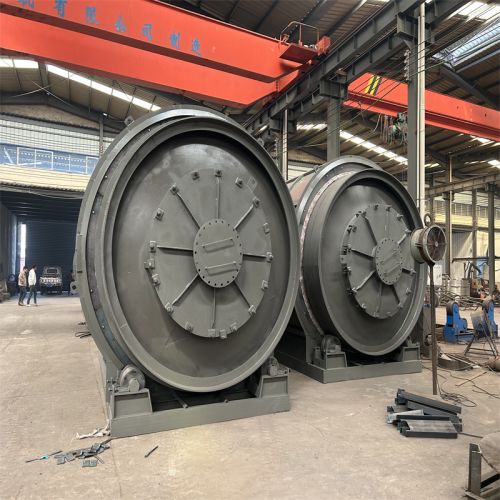Oil Sludge Treatment Pyrolysis Plant
Oil Sludge Treatment Pyrolysis Plant
Product Description
Oil sludge is a complex physico-chemical mixture, consisting of three distinct fractions: water, oil and solid (metals, salts, sand, etc.).
As most promising of the presented methods of utilization of oil sludge is pyrolysis, it can refine oil sludge by thermal cracking process which compared with the other methods have a number of significant advantages.
Oil sludge (OS) is a common waste in oil field mining, oil transportation, fining, storage and other oil related process which consisting of three distinct fractions: water, oil and solid (metals, salts, sand, etc.).
OS can cause great damage to the environment and threaten human's health if not treated properly.
During the drilling process, the oil-containing silt,which brought from replacing the well-drilling and extracting the drive pipe, will be left around the well site. The oil-containing silt that is covered with various sands and sundries, etc., will be piled up more and more before the site is cleaned up or the oily sludge is temporarily piled up for a period of time. The oily sludge comes from the deep drilling strata, and contains a large number of benzene series, phenols, anthracene, pyrene and other odorous toxic substances. It will not only damage the soil or pollute the environment, but also cause the waste of resources if not treated well.
Features of Pyrolysis Process Safety:
1. Anti-explosion control: During the pyrolysis process, combustible gas will be generated as fuel gas for pyrolysis system heating usage. The combustible gas will be filtered through the anti-flashback water seal to prevent combustible gas from flashing back to the oil tank and then enter the furnace to be recycled , causing combustion or explosion.
2. Emission Control: 2-phase scrubbers and activated carbon filters to prevent pyrolysis process from releasing pollutants.
3. PLC control : All motors and gauges of the Oil Sludge Treatment Pyrolysis Plant are connected to PLC, which can realize mechanical and electronic control. The control cabinet is equipped with an alarm system. When the temperature, pressure, or mechanical abnormalities occur during the operation of the equipment, the control cabinet will automatically alarm.







